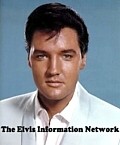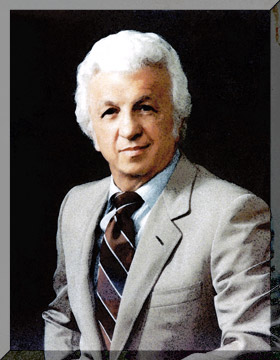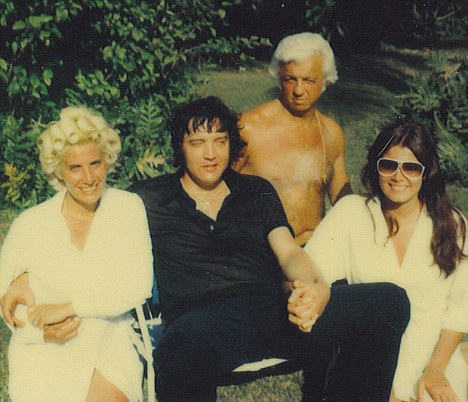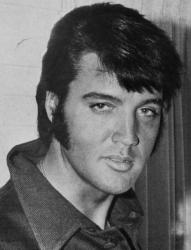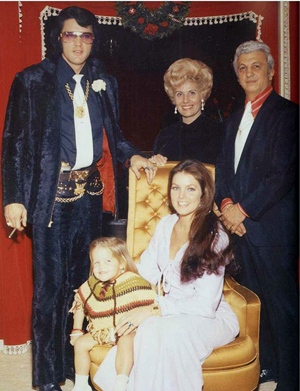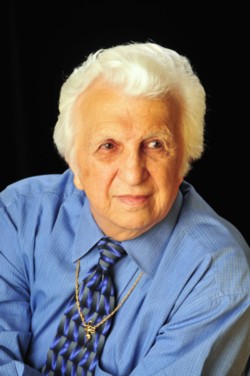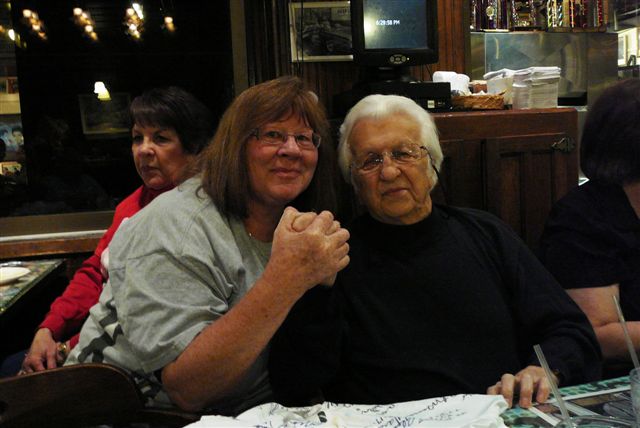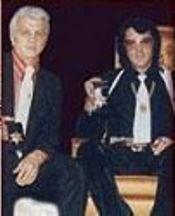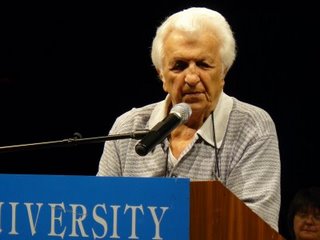 |
 |

"We see in Elvis’s story and mine how people confuse perception with truth and information with fact, and form opinions based on hearsay that they refuse to let be challenged." (Dr. Nick)
................................................ The Interview
When I started dating Edna, who later became my wife, her father had a restaurant in north Memphis just blocks away from Lauderdale Courts, where Elvis lived. We would see Elvis around from time to time although I didn’t know him personally then. Edna did. She and her sister went to Humes High with Elvis. Anyway, I returned to Nashville and re-entered Vanderbilt after I decided I’d rather practice medicine than work in research. Edna and I had three kids in six years; so I was really busy working my way through med school and supporting my family. EIN: Did you always want to be a doctor? Dr. Nick: Being a doctor was one option I picked when I was eight or ten-years-old. I liked watching Dr. Welby on TV. When I attended Sewanee, it was a college that had an Episcopal seminary associated with it, so I considered becoming a priest. I did have a back-up plan if neither of those careers worked out; I’d go into the restaurant business like my father. EIN: Dr. Nick, you are known for being a very private person. Do you think this has contributed to negative perceptions about you? Dr. Nick: I’ve never heard that anyone considered me a “very private person.” When speculations about Elvis’s death occurred, I stopping speaking out because what I said was being misrepresented. Then people seemed to construe that I wasn’t talking more because I had something to hide. The media kept depicting me as a villain in their “investigations.” I think these are all things that helped the public form negative perceptions about both me and Elvis. EIN: You worked with author Murray Silver on a possible Dr. Nick memoir around 1990. Why was it never published? Dr. Nick: Murray and I talked about writing a book together, and he prepared a proposal that I did not have a hand in writing. No publishing deal materialized from that effort.
On vacation in Hawaii EIN: The Silver book supposedly included your theory that Elvis may have died (was murdered) due to a karate chop. Please tell us about this. Dr. Nick: I was surprised when I read Murray Silver’s book over how exaggerated he had made that. I had simply wondered when so many theories were flying around, if Elvis could have been killed by a karate chop. I never intended that to become the basis for a book. In context it was about the rumour that Elvis had two wills: one will where he left money to members of his family and entourage; another where he cut out those people and they received nothing. Questions were being asked: “Who could profit from Elvis’s death at that time, and if he was murdered, how could it have been carried out?” The karate chop explanation was more of a question than a theory. Vernon Presley asked Dick Grob, head of Graceland security, to check out the theory for him because Vernon had been told David Stanley remarked that he had killed Elvis. I talk about these speculations in my book. EIN: Your book, The King and Dr. Nick: What Really Happened with Elvis and Me was released earlier this month in the US and will be released in Australia this month and Britain in March. Are you happy with the way it has turned out? Dr. Nick: I am very happy with the book and am grateful that Thomas Nelson Publishers let me tell my story with the respect for Elvis that I felt he deserved. I was determined not to sensationalize our relationship as other publishers wanted me to do. The title was changed from the above to The King and Dr. Nick: What Really Happened To Elvis and Me because we wanted to focus more on how the public was duped into believing Elvis died from a drug overdose and that I gave him the pills that killed him. That’s the crucial element in how the reputations of both of us were destroyed. EIN: How are sales of the book? Dr. Nick: It’s too early to tell. The book has barely made it into stores. I’m not as worried about sales figures as I am people reading the book. They can check it out of the library or borrow it from a friend. I just want people to read my story to gain insight into the insidious Elvis conspiracy. EIN: The book is co-written by Rose Clayton Phillips. How long did it take you and Rose to put it all together? Dr. Nick: It took about eighteen months from start to finish. There was a tremendous amount of vetting that had to be done to insure accuracy. We wanted the doctors and lawyers involved to read the final manuscript and sign off on it which took extra time. I’ve been misquoted so much that I didn’t want to be guilty of misconstruing any information. I was fortunate that Rose was on Elvis’s final tour and had a real sense of what took place there. She also covered my medical hearing and criminal trial for the national media, so she experienced the story first hand as I lived it. That helped tremendously. EIN: Do you feel a sense of relief that finally you have been able to tell your side of the story? Dr. Nick: No. I don’t feel relieved. I’m excited about getting the real story out to the fans, as well as the general public who have misjudged Elvis for so long and misunderstood my behaviour and motives.
EIN: What do you hope readers will take away after reading the book? Dr. Nick: I hope the book challenges readers to think before they judge people: on what are they basing their judgments? Appearances can be deceiving, so people need to consider the source of a story and see if the person relating it has something to gain by his point of view. Are people allowing themselves to be used to spread someone’s else toxic agenda? The saddest part of Elvis’s story is the people he cared about most failed to understand him, misjudged him, and talked out so freely against him. Their disloyalty distorted his image, but they seemingly have no remorse for what they did for their personal gain and their publishers’ gain. EIN: It’s hard to believe it’s more than 30 years since Elvis died. I’d like to go back to the beginning of your relationship with Elvis. When did you start treating him? Dr. Nick: In early 1967. His regular Memphis doctor was unavailable, so I was called to treat him for saddle sores from horseback riding before he left to make a movie in Hollywood.
EIN: When did Elvis’ drug issues become a concern to you? Dr. Nick: Elvis returned to Memphis in 1973 with a medical emergency that was the result of a non-traditional medical treatment he had been undergoing for six months. That treatment caused him to become addicted to Demerol. After he was detoxed, Elvis’s system was never the same. He suffered permanent damage that impacted his health for the final four years of his life. I cover that incident thoroughly in my book because it is the basis for the hospital administration and staff jumping to the conclusion that Elvis was a drug addict. EIN: What was your treatment plan for Elvis? Dr. Nick: The plan differed depending on what Elvis’s medical needs were at the time. There were specific treatments for specific issues. EIN: Was Elvis’ problem with drugs worse when he was in Vegas, on the road or at home? Dr. Nick: You need to read the book to understand that Elvis had health problems not an ongoing drug addiction problem as your question implies. The book explains in detail what illnesses plagued Elvis when he was in different parts of the country. When he was at Graceland, Elvis took a minimum of medication because he had less stress. EIN: In 1973, Elvis overdosed twice on barbiturates, initially while in Las Vegas and later in St. Louis. Were these the first times Elvis had overdosed? Dr. Nick: Your information above about overdoses is inaccurate. If you read my book, you will find an explanation for what really happened. I don’t respond to stories of situations I did not witness first-hand.
Dr. Nick: Of course I spoke to him about telling me what medications he was taking from other doctors. I was concerned about drug interaction. I discuss in the book how challenging it was to treat Elvis, and other patients as well, during the drug-crazed 70’s. Unfortunately we doctors were not fully aware of the problems being caused from the use of some of the drugs we were prescribing at the time. EIN: By 1976-77 Elvis was obviously in bad shape both physically and emotionally. As his doctor, what concerns did you have about his state of health? Dr. Nick: I don’t know what you’ve previously read that you are basing your assessment on. People attempting to explain his sudden death have grossly exaggerated Elvis’s physical and emotional condition in his final months. My concerns were basically for his colon problems, unfortunately I had no way of knowing how serious his disease was because we did not have MRI’s or tests to assess his condition at that point in time. EIN: Did you consider he could be risking death? Dr. Nick: I had no evidence that Elvis was risking his death. I assume you are alluding to rumours that Elvis was a drug addict. EIN: Dr. Nick, much is made of the fact that in 1977 you prescribed more than 10,000 doses of prescription medication for Elvis. Dr. Nick: I explain the amount of medication I prescribed for Elvis and my philosophy for prescribing it thoroughly in my book for those who continue to be disturbed by it. There is a simply explanation: I wrote prescriptions in Elvis’s name for his entourage, his band and his production crew, whom I treated when we were on the road, so Elvis could pay for the medications for his employees. Those doses were not written for Elvis to take personally. EIN: Is it known how many doses of prescription medication Elvis had in his possession when he died? Dr. Nick: None that I know of. Elvis did not have access to the medication I prescribed for him. He was given his individual doses for whatever medical issues I was treating in envelopes that were handed to him at the specific time he needed to take them. Again, this is explained thoroughly in my book. EIN: When Elvis died what were his major medical issues? Dr. Nick: Intestinal problems basically from a diseased colon; hypertension; mild diabetes; Reiter’s Syndrome, which includes glaucoma, arthritis, muscular disease and urinary track symptoms; migraine headaches; and allergies, which caused sinus and throat problems. He also had adrenal deficiency that was the result of his acupuncture treatments in 1973. While his weight contributed to difficulty controlling his hypertension and diabetes, his weight was not consistent with what one would call obesity. I believe people will realize how much his weight problem and dietary issues have been exaggerated when they see the photos in my book of his performing through the years and up to his final performance. Of course, Elvis had chronic insomnia, and I believe his inability to sleep affected his health in many ways. When you can’t sleep, your body can’t heal. EIN: Many things have been claimed about Elvis’ medical conditions around the time of his death. A number of people close to him have claimed he said he had bone cancer. Was this a medical issue for Elvis? Dr. Nick: The bone cancer theory came from a doctor on the autopsy team, who thought there were signs of bone cancer evident at autopsy. After further tests were performed, and I explain this in my book, it was determined that Elvis did not have bone cancer. EIN: The debate over how Elvis died has now raged for more than 30 years. Cardiac arrhythmia or polypharmacy? Dr. Nick: Polypharmacy was a ridiculous conclusion reached by clinical pathologists that were not accustomed to giving a determination of death after an autopsy. I hope the doctors we interviewed for my book will put the polypharmacy rumour to rest. With all the information to the contrary available from independent forensic pathologists, it is mind bogging to me that people still cling to that silly polypharmacy myth. EIN: Dr. Nick, do you believe Elvis’ large ingestion of prescription medications was a contributing cause of his death? Dr. Nick: No. To my knowledge the amount of prescription medications Elvis took had nothing to do with his death. What he was taking was medically appropriate and did not lead to complications that caused his death. How can people still believe this crap after more than thirty years? EIN: Since Elvis’ death there has been conflicting accounts of whether or not a cranial autopsy was performed on Elvis. What is the truth? Dr. Nick: To my knowledge a complete autopsy of Elvis’s body took place. That included a cranial investigation. EIN: Dr. Nick, with the benefit of that wonderful thing called hindsight, is there anything you would have done differently in your treatment of Elvis? Dr. Nick: We tried to suggest different procedures on Elvis, but they were not medically acceptable in 1975, so no doctor could risk doing them. For more than 30 years I have studied about megacolon and the hereditary disease that plagued Elvis throughout his life and lead to his early death. Specialists I have talked with assured me we did the best we could with what we knew at that time. EIN: Again with the benefit of hindsight do you believe Elvis’s death could have been prevented, and if yes, how? Dr. Nick: Elvis’s death could not have been prevented in 1977. As one of the specialists we interviewed for my book put it, “He was a walking time bomb.” Nowadays there is a procedure that can correct a colon condition like Elvis’s. I hope when people who suffer as he did read this book, they will realize they don’t have to live with the condition and will get help. That possibility is one big reason I wanted my book written.
EIN: At times since Elvis’ death, you have lived in fear of your life. This must have been terrible. Please tell us about this issue, including the Liberty Bowl incident in 1977. Dr. Nick: I didn’t consider the Liberty Bowl incident a serious threat. I don’t even mention it in my book. I don’t think I ever actually feared for my life, but I was concerned that someone crazy might hurt my family. EIN: What toll has the ongoing debate about your treatment of Elvis and his death taken on you and your family? Dr. Nick: It has been frustrating but the worse part is not feeling that I have made a difference in clearing Elvis’s name. If I could do that, I would clear my own name as well. Most of all I would be giving something back to Elvis, who gave so much to me, and renewing my family’s faith in me. My family has been unbelievably strong and supportive. I could not have asked more from them. They never broke. EIN: In 1995 the Tennessee Medical Board stripped you of your license to practice medicine. Why do you believe they did this? Dr. Nick: The media never let up trying to prove that Elvis was a drug addict and I was responsible. After “The Elvis Cover-Up” was on 20/20, the books started coming out with more allegations of an OD. Then the producers of that show wrote a book that basically accused me of murdering Elvis for financial gain, which was totally ridiculous. Anyway, I think the Tennessee Medical Board saw me as a liability—bad publicity—and just got tired of dealing with the charges being brought against me and put an end to it. EIN: How did you handle what must have been one of the worst, if not the worst, moment in your life? Dr. Nick: I prayed for strength and the ability to forgive and to survive. I resolved to find out all I could about the disease that killed Elvis, and I promised I’d visit a few of my former patients every day so they wouldn’t feel abandoned and to keep my mind off of what had happened to me. EIN: How has your life changed since losing your licence in 1995? Dr. Nick: I don’t go to an office to treat patients, so obviously I now have more time at home. I’ve always been interested in research, so I read and study a lot. I look for ways to help people medically: consulting with them and other specialists and directing them where they might find help. EIN: Is it true you acted as Jerry Lee Lewis’ road manager at one time? This seems a very unlikely vocation for Dr. Nick. Dr. Nick: Jerry was travelling a lot outside the country and being treated by doctors he didn’t know. He wanted me to go along so he could be assured he was receiving good medical care. He didn’t have a road manager then, so I took that spot, so to speak. I didn’t perform the duties that a road manager would. Others in his group did that. I enjoyed the job and was grateful for it; I got to stay close to the profession I loved and it helped support my family. EIN: An insidious part of our contemporary celebrity culture is that the media feeds the public with tabloid sensationalism at the expense of factual reporting on the underlying real issues. In this context, people become attackable commodities regardless of truth. How victimised by the media have you felt? Dr. Nick: Both Elvis and I were victimised by the media to increase ratings and advertising sales. That’s the way they play the game. What bothers me is people still haven’t caught on to what the media did and the part they played in and continue to play in the media’s “downfall” saga. When you live a high profile life you’re a target that often gets hit. I hate the attacks more for my family than for myself; they’ve been the innocent victims in this. That’s another reason I wanted to tell our story straight—for my grandchildren—even if no one else cares about my views. EIN: Unkindly, you are often referred to by some fans and the media as “Dr Feelgood”. What is your response to this name? Dr. Nick: I only know of what one article that said that. It was just a writer being a smart-aleck. Some people think it makes them look important when they diminish another person’s accomplishments or efforts. I just consider the source and let it go.
EIN: Despite ongoing criticism of you during the past three decades, there have also been many people who have been supportive of you and your endeavours to help Elvis. I am thinking of people like Marty Lacker, Myrna Smith, Larry Geller, Elvis’ nurse, Marian Cocke and Elvis’ cousin, Billy Smith. How important has this support been to you? Dr. Nick: There’s a group that appreciates anyone who focuses on the good in Elvis and what he stood for. I’m grateful they are continuing to try and make a difference on his behalf. EIN: What do you think of fans who believe Elvis faked his death in 1977? Dr. Nick: Some people will believe anything. Others just wanted to believe Elvis could still be alive—that he could escape death like Superman. I personally don’t know any fans who took the idea seriously. EIN: How would you like to be remembered in the Elvis story? Dr. Nick: As a genuine friend who was always there for him—one who was grateful to have been a part of his life. EIN: What’s next for Dr. Nick? Dr. Nick: I hope my health will hold up, so I can talk with fans about my story. I’d like to visit with them and share other memories of Elvis than I didn’t have space to include in The King and Dr. Nick. EIN: Dr. Nick, is there anything else you would like to say? Dr. Nick: Yes. Thanks for giving me the opportunity to tell your readers about my story and for allowing me to encourage them to read this book with an open mind for a new prospective on Elvis—the way he lived, the way he died, and the legacy he left behind. EIN: Dr. Nick, thank you so much for taking the time to talk with us today. It has been EIN’s great pleasure to present your side of the story to our readers. We wish you all the best with your book and future endeavours and hope we can talk to you again sometime in the future.
EIN Website content © FEEDBACKMike Eder: I just wanted to say that I feel this is an excellent interview. As someone who has studied the footage, photographs, and recordings of Elvis Presley almost daily since 1982 I feel that Nick's story is what matches closest to the existing evidence about this man. It has long been my contention that Elvis was not a medical drug addict but rather a person with some real health issues. I think Elvis was a hypochondriac, I think he was sometimes reckless, but I don't think he had the mentality of wanting to get high. In fact outside of some light experimentation with recreational drugs, I feel that Elvis wasn't out to get stoned period. Dr. Nick's book goes out of his way to confirm my long held beliefs and to discredit the Cole and Thompson book once and for all. Jeanne Pellicani: Thank you for this very insightful interview. I recently read Dr. Nick's book, and found it to be honest, forthright, and very informative. I've always felt that if so many members of Elvis' entourage thought Dr. Nick was helping Elvis, that there must be some truth to it. However, I'm not convinced that all the years of taking drugs did not somehow contribute to Elvis' medical problems, and indirectly, ultimately to his death. Elvis was taking drugs long before Dr. Nick arrived on the scene. Dr. Nick's book is an enlightening read- I recommend his book to any true Elvis fan. Tim Pate: An excellent interview, thank you. I took particular attention to Dr. Nick’s comment on the state of Elvis’ obesity in 1977 – Having seen the concert footage (all of it), I have always said that he did not look obese – at least not how the media have represented it – he look bloated, but not fat. This is a book that I will read. Thanks for bringing it to our attention. Copyright the Elvis Information Network. .
. |
|
